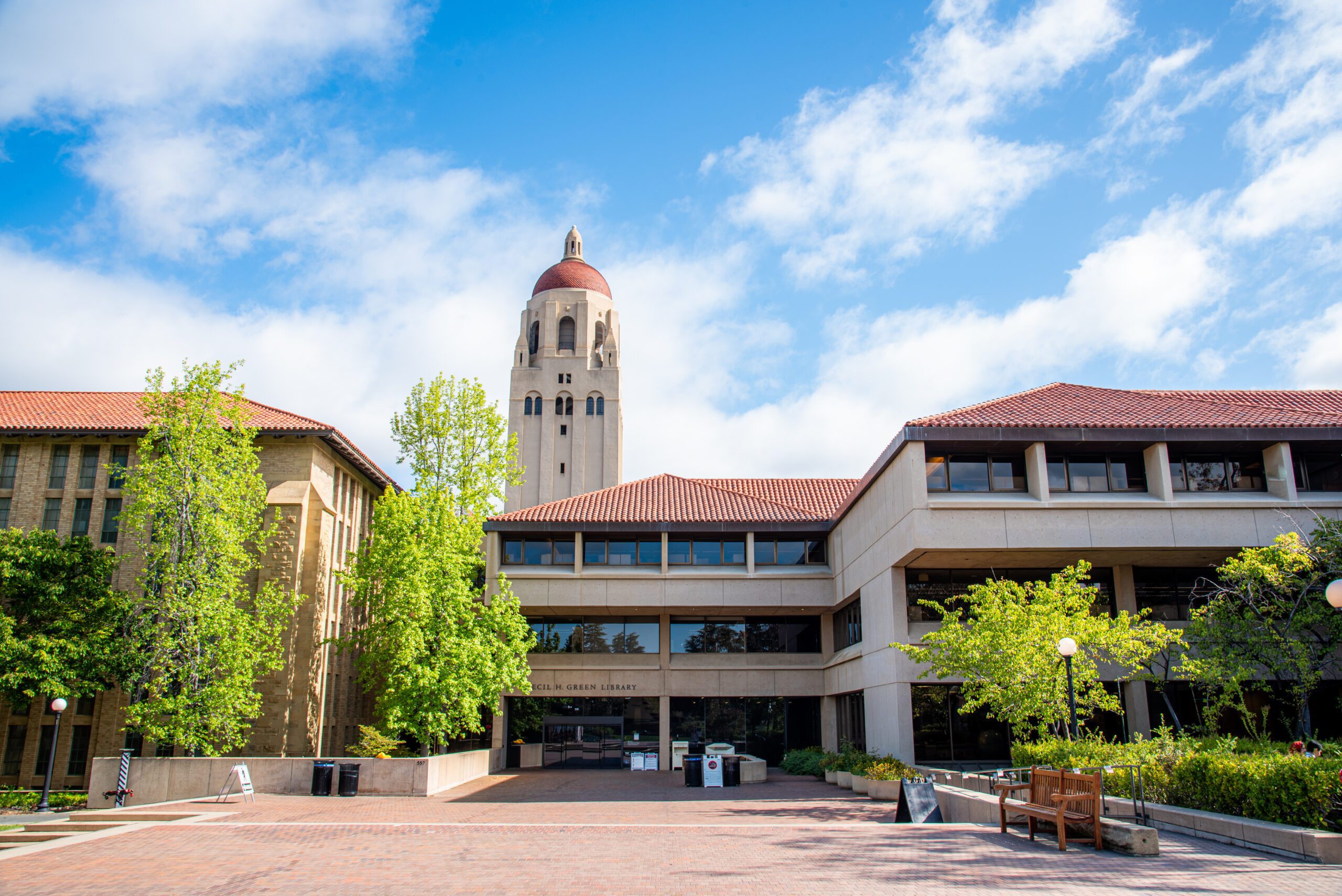The annual 2-6-month fellowships enable Estonian researchers to visit Stanford University and make use of its academic knowledge, networks, and collections related to the study of Estonian history, foreign policy, security, digital society and economy, cyber security, smart governance, and technology and trust. The fellowships also aim at enhancing Estonian scholars’ ability to share their knowledge of and experience in issues related to these subjects with the research community at one of the top universities in the world and other relevant entities in Silicon Valley, thus contributing to a better understanding of these topics on a global level.
Mari-Liis Jakobson, Tallinn University
Short-Term Research Fellowship at Stanford University for Estonian Scholars, March- April 2025
Radical Right and the Minority Vote: A Rapprochement in Progress?
The radical right is usually defined as anti-pluralist: it values social homogeneity above all else, and in some cases even seeks to punish otherness: for example, by restricting the rights of minorities, people from an immigrant background or LGBT+ people. At the same time, there is a growing trend of seemingly mildening rhetoric towards select minority groups among radical right politicians and parties in many parts of the Western world. Even candidates from minority backgrounds are increasingly to be found in the ranks of such parties. The aim of my visit is to work with the Stanford labs on an experimental survey instrument to see what effect such strategies have on support for the radical right, and whether such shifts in discourse also help to increase support for right-wing politicians among minority voters, or whether these are more likely to win over wavering majority voters. I also hope to develop contacts with researchers there who are exploring similar issues and to plan further cooperation.
Mari-Liis Jakobson is Associate Professor of Political Sociology at the School for Governance, Law and Society, Tallinn University, and Principal Investigator of the starter grant project “Breaking Into the Mainstream While Remaining Radical: Sidestreaming Strategies on the Populist Radical Right “. Her research interests relate to populism, radical right and migration and transnationalism politics and policy. Her work has been published in several internationally recognised peer-reviewed journals, such as European Political Science, Contemporary Politics, Politics and Governance or Comparative Migration Studies. She is also co-editor of Anxieties of Migration and Integration in Turbulent Times (Springer, 2023).
Anastasiya Astapova, University of Tartu
Short-Term Research Fellowship at Stanford University for Estonian Security and Foreign Policy Experts, January-March 2025
Conspiratorial Thinking among Russian-Speakers in Estonia
Since 2016, I have been doing research into disinformation and conspiracy theories, including that of the ethnic minorities. I find it crucial to recognize that while conspiracy theories are global, they vary locally, and their variants depend on societal structures and historical contexts. In my research, I concentrate on Russian speakers in Estonia, a heterogeneous group, whose exposure to disinformation varies greatly, yet persists (which is true about any minority or majority group worldwide nowadays). I explore the reasons and vulnerabilities behind this group’s conspiratorial thinking and analyze other narratives that, as I discover through ethnography, tend to gravitate toward conspiracy theories, from humor to supernatural beliefs.
In addition to the academic research, I have practiced very productive interventions for different age, ethnic, professional, and social groups in Estonia by doing seminars about conspiracy theories, most often at high schools. These projects will continue, and to not only intervene, but also to learn more from these opportunities for intervention, I am in the process of designing the study of the Russophone adolescents’ repertoire of conspiracy theories. This includes the methodological design (thorough planning of focus groups and individual interviews), but most importantly dealing with challenges conditioned by the young age and the ethnic minority status of those under study. Schools and education are central for addressing the problem of disinformation and training students in critical, rational thinking have shown the best effects. Sharing the results of my ongoing research into conspiracy theories among Russophones in Estonia as well as shaping its newer directions for it will be the aim of my visit to Stanford University.
Anastasiya Astapova is an Associate Professor of Folkloristics (University of Tartu, Estonia) and a member of Estonian Young Academy of Sciences. Previously, she was interested in the research of post-socialist humor and rumor under authoritarianism (which, along with other publications, resulted in her monograph Humor and Rumor in the Post-Soviet Authoritarian State. Lanham: Rowman and Littlefield, 2021). In 2016-2020, Astapova was a board member of the COST project “Comparative Analysis of Conspiracy Theories”, within which she published a co-edited Conspiracy Theories in Eastern Europe: Tropes and Trends (Routledge, 2020) and a co-authored Conspiracy Theories and the Nordic Countries (Routledge, 2020), among other works. Astapova is one of the founding members of CONNOR: Nordic Network of Conspiracy Theory Research. At the moment, Astapova is a principal investigator in Estonian Science Foundation project “COVID-19 Conspiracy Theories: Contents, Channels, and Target Groups”, a member of Horizon project DELIAH: Democratic Literacy and Humor”, and a member of ERC grant “Conspirations: Conflicts over Conspiracy Theories”.

Janar Pekarev, Estonian Military Academy
Global Digital Governance Fellowship at Stanford University for Estonian Scholars, January-July 2025
Drawing inspiration from methodologies in medical AI research, this study will incorporate controlled experimental designs alongside in-depth expert interviews to ensure both precision and depth in the findings. The experimental component will involve military leaders and personnel engaging in simulated scenarios that systematically vary AI feedback—from accurate to intentionally flawed. These scenarios are crafted to test responses to different types of AI information, including precise, inconsistent, and misleading data. Key metrics such as decision accuracy, time taken to make decisions, and confidence levels will be measured and analyzed using statistical tools to determine the impact of AI feedback on decision quality and speed.
Detailed expert interviews will complement the quantitative data and explore the underlying reasons behind decisions. Through open-ended questions, participants will discuss their experiences and perceptions of AI in military operations. The transcriptions of these interviews will be analyzed using qualitative software to categorize responses and identify themes related to trust, reliance, and skepticism towards algorithms. Different scenarios will present reversed roles and differing confidence levels between AI assessments and human judgment, scrutinizing decision-making processes under varying degrees of uncertainty and pressure. This approach will ensure that the AI systems used in the study are robust and relevant, providing accurate and meaningful feedback for the scenarios. Participants should also solve rules of engagement scenarios, making value judgments that reflect real-world complexities and ethical considerations.
While undertaking this research project independently, I seek to collaborate with Stanford scholars to verify and validate the study. Their expertise will be invaluable in refining the research design, ensuring methodological rigor, and interpreting the findings. This collaborative effort aims to produce a robust study ready to be carried out, with the methodology prepared for analysis as soon as data is gathered. Understanding its impact is crucial as AI continues to play an increasingly prominent role in military operations. This research will provide valuable insights into the dynamics of AI integration in high-stakes environments, offering guidelines for developing AI applications that support rather than supplant human judgment. Through a scientifically rigorous methodology, this scholarship aims to ensure that AI systems in military applications are developed and deployed with a clear understanding of their potential impacts, thereby optimizing their integration and enhancing operational outcomes.
Janar Pekarev is a distinguished military officer and Junior Researcher at the Estonian Military Academy. Holding a PhD in Sociology from the University of Tartu, Janar utilizes an interdisciplinary approach that integrates insights from law, military science and technology, and sociology. His research focuses on the complex dynamics of human-machine teaming within the military domain, with particular emphasis on AI weaponisation and the moral programming of autonomous weapons. Janar has contributed extensively to the field through numerous publications in international journals and presentations at various academic conferences.

 Back
Back

